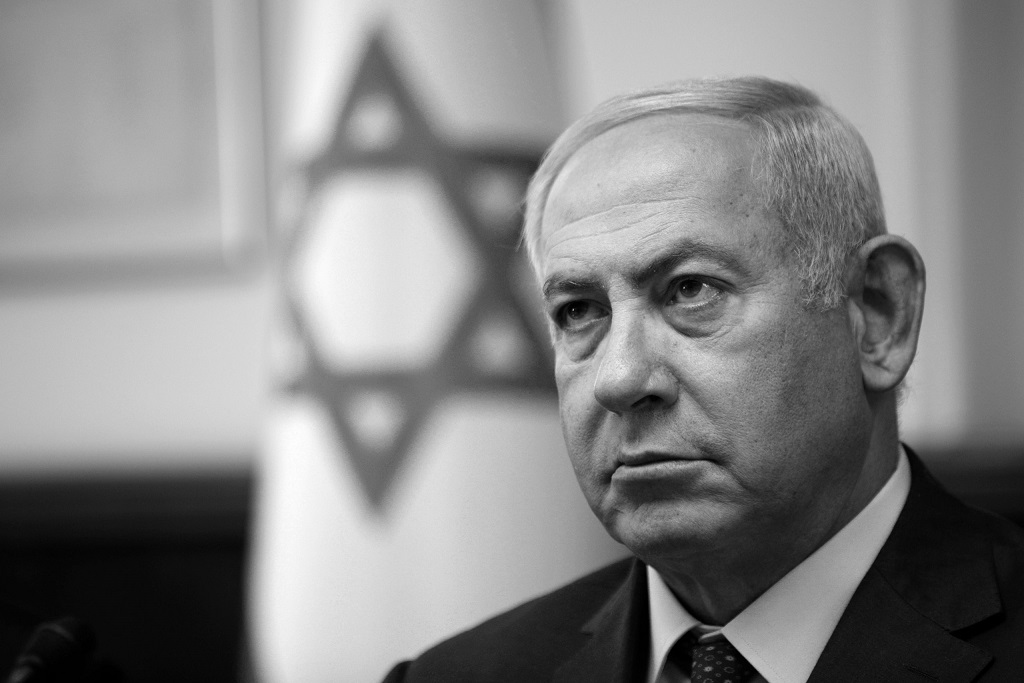While claiming that the current US administration’s policy against Iran is weak, the former Israeli prime minister, called for any action against a possible agreement with Iran as a result of the Vienna talks.
Faraan: In an exclusive interview with a Zionist media outlet, former Israeli Prime Minister Benjamin Netanyahu claimed that the US policy towards Iran was weak and called for any action against a possible agreement in Vienna.
“I think what matters is what is the right policy and what is the wrong policy, not who is doing it,” he told A24 news agency. “Over the years, when I have seen American governments adopt policies that I thought were harmful or dangerous to us, I opposed them, (these governments) were sometimes Republican and sometimes Democrat.” Netanyahu added: “So I think the issue is not the identity of the government but the policies, and now I think the policy is weak and the right policy from Israel’s point of view should be to speak out against it.”
“I went to Congress to speak against the then President of the United States,” he said, referring to her 2015 speech to the US Congress against the Iran nuclear deal. I did not do it out of joy, I knew I was doing something unprecedented, but I also knew that the survival of my country (the Zionist regime) and I think the survival of many countries was in danger, so I did it. I spoke in the UN format, I talked about it in countless interviews, and I did everything I could to mobilize the Senate and Congress against what I thought was a dangerous deal for the United States, Israel, and everyone else. That’s what I think needs to be done now. If it is done now, people’s attention will be drawn towards it.
The former Israeli prime minister then made repeated accusations against Iran’s peaceful nuclear program. He emphasized that if his actions had not been carried out against Iran, both operationally and politically and economically, Iran would have had a nuclear arsenal with hundreds and possibly thousands of atomic bombs. He added: “I think now is the time for more action (against Iran). Israeli Prime Minister Naftali Bennett also commented on the Vienna talks recently claiming that the current talks in Vienna may “end soon with an agreement that is not strict enough against Iran.”
“Negotiations between Iran and the [world] powers to return to the Iran agreement are very advanced,” Bennett said. “We may see an agreement in the near future.” He then claimed that “the new agreement is apparently shorter and weaker than the previous one”. Explaining the claim, Bennett said Barjam (The Joint Comprehensive Plan of Action), signed in 2015, was 10 years old, meaning that returning to it would mean an agreement in which most restrictions on Iran’s uranium enrichment would expire in another 2.5 years.
“On the contrary, the Iranians will now receive tens of billions of dollars and the sanctions will be lifted,” he said, adding that “eventually this money will go to terrorism in the region.” Western countries, led by the United States and the Zionist regime, have in recent years accused Iran of pursuing military goals in its nuclear program, a thing which Iran has vehemently denied. Tehran emphasizes that as a signatory to the Nuclear Non-Proliferation Treaty (NPT) and a member of the International Atomic Energy Agency, it has the right to acquire nuclear technology for peaceful purposes.
In 2015, Iran reached an agreement with the so-called P5 + 1 countries to resolve tensions over its nuclear program, and despite the International Atomic Energy Agency’s acknowledgment of Iran’s compliance with all its obligations, the US government unilaterally walked out of this agreement in May 2019. While the eighth round of talks on lifting sanctions against Iran is underway in Vienna, the Minister of Foreign Affairs of the Islamic Republic of Iran, Hossein Amir-Abdollahian, while expressing optimism about reaching a good agreement in the Vienna talks, met with EU foreign policy chief Josep Borrell. “It is time for the United States and the three European countries to show the real will to reach an agreement in the shortest possible time by making the necessary political decisions,” he said in Munich. “If it were not for Iran’s initiatives, we would not be so close to an agreement, but the other side should know that Tehran will not ignore its red lines.”










